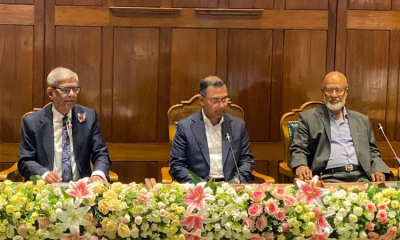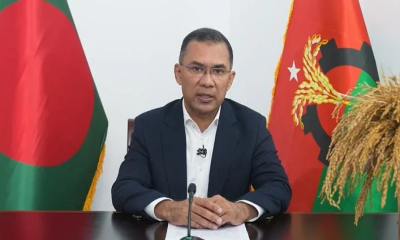Referring to Japan’s decades-long relationship with Bangladesh, State Minister for Shipping Khalid Mahmud Chowdhury said Japan’s investment in the region will help boost its socio-economic development.
Since 1971, Japan has emerged as Bangladesh’s largest bilateral development partner, he added.
Khalid was addressing a two-day summit on “North East India and The Bay of Bengal in The Indo-Pacific: Building on Connectivity: The Way Forward.’’
Titled “Third India-Japan Intellectual Conclave”, the event was organized by Asian Confluence, a think tank based out of North East India, in collaboration with India's foreign ministry, in the Indian state of Tripura. Japan also joined the conclave which ended on Wednesday.
Alongside sharing geographical and cultural bonds, Bangladesh and India have a relationship based on an important and powerful history, said Khalid.
The two countries have completed the trial run of vessels sailing between them using Chittagong and Mongla ports and the sea routes will soon be fully launched, he hoped.
Khalid said the Chittagong Port Authority has the capacity of handling goods in full swing.
Bangladesh and India have inked the Protocol on Inland Water Transit and Trade, through which goods can be transported to the seven Northeastern Indian states and West Bengal using Bangladesh’s land, he said.
Also, a shipping agreement has been inked between the two countries for transporting goods via sea and river routes to eastern Indian states, according to the state minister.
Md Mustafizur Rahman, Bangladesh High Commissioner in India, Riva Ganguly Das, government council member of Asian Confluence, and Hiroshi Suzuki, Japanese ambassador to India, among others, also joined the event.












-20260217073221.webp)




-20260216115008.webp)















